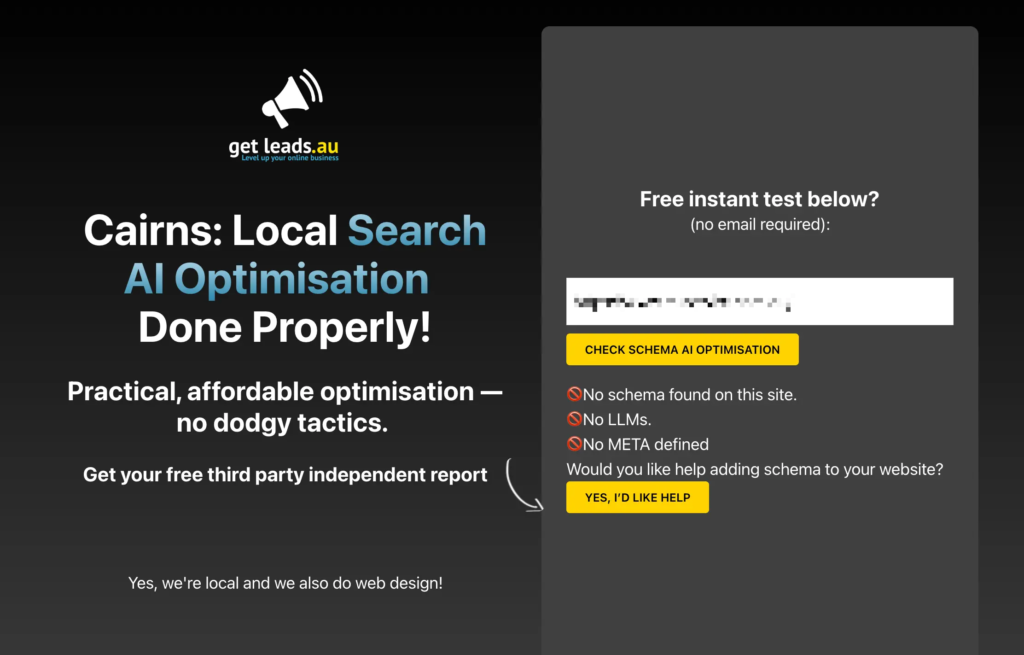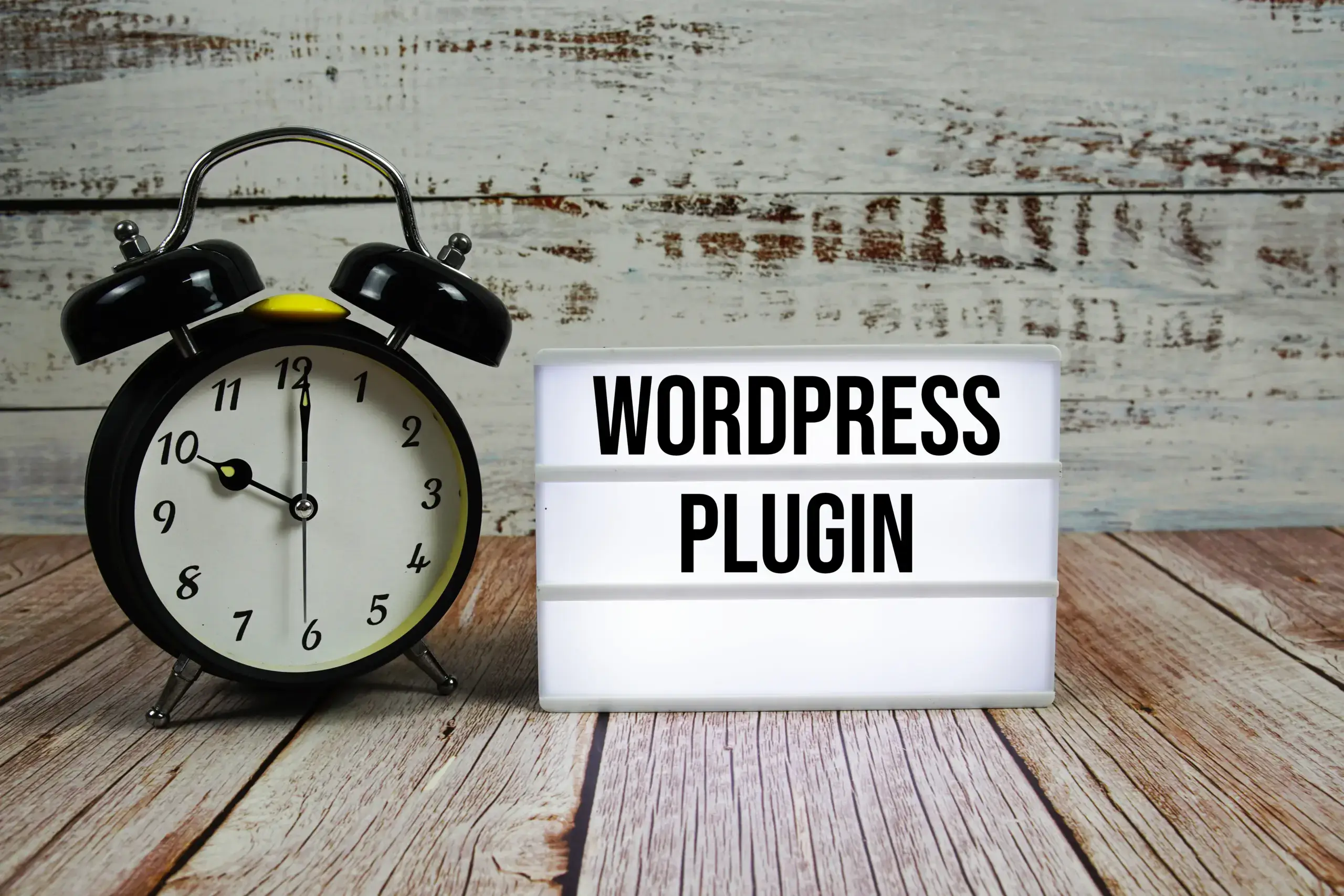How do you setup your website up for Search AI?
We’re living in the Google AI and ChatGPT era—where Search AI is evolving faster than most businesses can keep up. Every website today is being scanned and scraped by AI systems that gather data to power search results and generative tools. Yet, amid this rapid change, many agencies are still pushing marketing hype instead of genuine AI-optimised websites.
In this article, we’ll explore six proven techniques to optimise your website for AI and Search AI—ensuring your content is structured, discoverable, and ready for the new world of AIO (AI Optimization). Plus, you can instantly check your own site using my Schema Test Tool, a simple way to analyse your pages for AI readiness without touching a line of code.

Why Schema Matters in the Age of Google AI and Search AI
Schema has been around for years, and while it’s often overlooked, it still plays a vital role in how Google and modern Search AI understand your website. In simple terms, Schema markup is the structured data that helps AI know what your page is about — whether it’s a service, product, person, or business. It’s the invisible layer of clarity that connects your website to how AI-powered search interprets and ranks your content.
Unfortunately, this is one of the biggest gaps we see across most websites today. Many sites skip it altogether, and that’s a problem — because if your competitors are using AI-optimised Schema and you’re not, you’re already behind. SEO isn’t a checklist; it’s a competition. Schema is one of those quiet ranking signals that can make a real difference in your visibility.
At Get Leads, we use SEOPress — a professional suite of SEO tools that supports full custom Schema integration. It’s cost-effective, covers all key SEO functions, and even includes a built-in ChatGPT API to help generate meta descriptions that you can easily refine.
Now, a quick word of caution for DIY platforms like Squarespace and Wix. As at 29th October 2025 while they automatically add some basic Schema, you can’t customise it deeply — which means your business information isn’t always defined in a way that Google AI or Search AI can fully understand. For serious AIO (AI Optimization), you need full control over your structured data, and that’s something these builders simply don’t offer.
FAQ Schema: Another Secret Weapon for AI Search Visibility
One of the most overlooked opportunities in AI-optimised SEO is FAQ Schema — the structured data behind those question-and-answer boxes you often see in search results. On every WordPress website we build, our accordions are fully compliant with FAQ Schema, ensuring your content can appear in both Google AI and Search AI results where users are literally asking questions.
This type of content aligns perfectly with how AI Search works. When users ask Google or ChatGPT-style tools for answers, your site has a better chance of being featured in those AI summaries and snippets — even if your domain doesn’t have massive authority. That’s because AI-driven search results focus more on relevance and structured understanding than on traditional domain strength.
Put simply, combining FAQ Schema with well-written question-based articles can significantly boost your traffic and visibility in the new AI-powered search landscape — without relying solely on high domain authority.
LLMs Files: Preparing Your Website for AI Crawlers
Most people haven’t heard of an LLM file yet — it’s a new type of file designed specifically for AI crawlers that scan your website. Think of it like a “read-me” guide for Google AI and other Search AI systems, helping them better understand your content.
The challenge is that even within the SEO community, there’s still some uncertainty about how much of a role LLM files currently play. Our view is simple — use it anyway. If AI crawlers are already looking for it, you’ll benefit. And if they’re not, you’ve lost nothing by being ahead of the curve.
The good news is that there are now WordPress plugins that can automatically generate and maintain your LLM file for you — no manual uploads or technical know-how required. It’s one more smart move toward future-proofing your website for AIO (AI Optimization) and the next phase of AI-driven search.
During November we rolled out LLMs.txt for all of our customers at Get Leads free of charge. If it’s something that might help to get traffic then let’s do it.
Smart Page Naming: Help Google AI Understand Your Content
Just like how AI tools such as ChatGPT give better answers when you ask clear, specific questions, your website performs better when your pages are named clearly too. The same principle applies to Search AI — the more precise your page titles and URLs are, the easier it is for AI to understand and prioritise your content.
By including targeted keywords in your URLs (known as “seeded keywords”), you give Google AI and AI-powered search systems stronger signals about what your page is about. This improves your visibility in AI search results and helps your content appear in more relevant AI summaries and featured answers.
It’s a simple, often-overlooked part of AIO (AI Optimisation) — but when done consistently across your site, it can make a noticeable difference in how your pages are indexed and surfaced by AI search engines..
Best-Practice SEO Still Matters in the Age of AI
These last two points come back to SEO best practices — something many marketing agencies gloss over. The truth is, building your website with proper HTML semantic structure is still one of the most important steps in helping Google AI and other Search AI systems understand what your content is about. Clean, well-structured code makes it easier for crawlers to interpret your site, which directly supports your AI Optimization (AIO) efforts.
One key part of this structure is your META data — the title and description you see displayed in Google’s search results. This is what catches a user’s eye and invites them to click through. A strong META title usually includes one or two targeted keywords that match your page topic, while the description provides a clear, human-friendly summary.
At Get Leads, we use SEOPress to manage these elements (though many people use Yoast). If you don’t define your META title and description, Google AI will simply generate its own version from your page content — and it may not be what you’d choose. While Google doesn’t always display your custom META exactly as written, having it defined properly gives you the best chance at visibility, accuracy, and higher click-through rates.
Why your page builder matters-Clean Code & Best Practice
If you’re using a DIY website builder like Squarespace or Wix, forget about best-practice code — those platforms simply don’t allow full control over how your site is structured. But if you’re using builders such as Elementor or Divi, it’s worth understanding what “best practice” really means when it comes to code quality and AI Optimization (AIO).
As developers, we all have our preferred tools, but there’s no denying that modern builders like Bricks Builder and Etch generate some of the cleanest, leanest code available. That matters because Google AI and Search AI reward sites that are well-structured, fast, and easy to interpret.
Now, will an extra <div> tag around an image make or break your rankings? Probably not. But starting with a builder that’s designed for performance and structured markup gives you the strongest foundation for AI-driven search and long-term SEO success.
And yes — if you’re considering upgrading to one of these professional-grade builders, that typically means a full rebuild. The good news? That’s exactly what we do — helping you launch a new, AI-ready website that’s built right from day one.
Summing up
Beware the agency that simply says they’re the ones to go with to get the best results from AI or their sites use AI. While some of it may be true go back to best practice SEO and understand that they’re trying to sell you a new site that again may not be optimised for the above. Drop us a call and we’ll review your site custom to make sure it measures up. A good way of checking if an agency is full of BS is to use my tool to test their website and see what result you get. Practice what you preach and deliver results. We’re rolling this tool out to both the Cairns and Wagga regions over the next few months via Google Ads and Meta ads. We also have two other tools which we’re providing to customers for Cyber security check for their website which I’ll write up an article shortly and for the art of performance and SEO.






